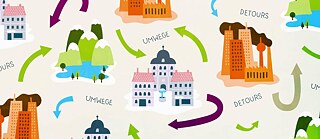It's finally happening: after over 30 years, the European Football Championship returns to Germany! From June 14 to July 14, 2024, 24 teams will vie for the coveted trophy. Discover everything about the tournament in our special, and take a nostalgic look back at quirky soccer songs, iconic fashion moments, and the historic East vs. West Germany match. Enjoy and happy kicking!
